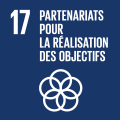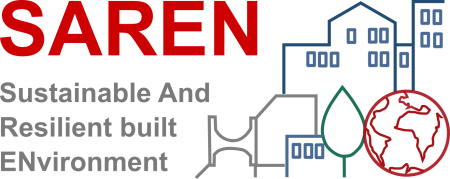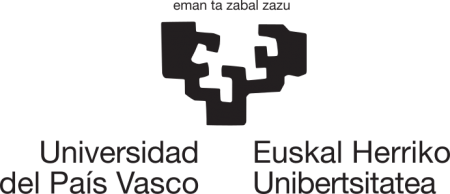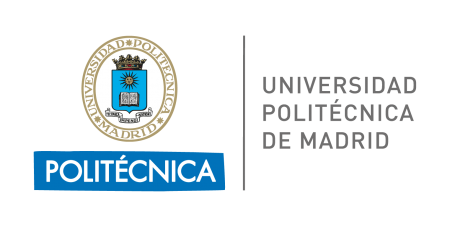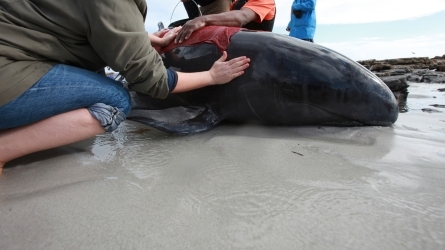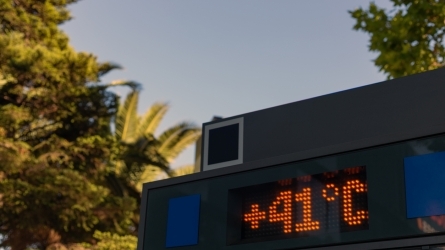
Cities facing climate change: sustainable adaptation and resilience to heat waves
Throughout the sessions, emphasis will be placed on the role of science in understanding and mitigating the impact of heat waves. Success stories that inspire and guide strategies for adapting the built environment will also be presented.
Description
Cities are complex ecosystems where environmental, social and economic dynamics come together. Climate change faces one of the greatest challenges in its history: adapting to the new extreme climate conditions and ensuring the population's health, equity in the use of resources, the development of economic activities and the sustainability of the entire built environment. To meet this challenge, science and technology must join forces to develop adaptation solutions, both on the building scale and on the urban space scale, viable, sustainable and adapted to the specific reality of each environment.
In this context, this Summer Course is presented as a multidisciplinary meeting point to address the phenomenon of heat waves, one of the major challenges facing our cities in the context of climate change. Bringing together researchers from the academy, Public Administration, and business sector representatives, the aim is to foster dialogue and cooperation to design innovative and effective solutions that improve the resilience of the environment built in front of these events.
Throughout the sessions, emphasis will be placed on the role of science in understanding and mitigating the impact of heat waves. Success stories that inspire and guide strategies for adapting the built environment will also be presented. The course will also emphasize the importance of cooperation between the actors involved as a means of proposing effective and equitable solutions which, in addition to addressing the climate challenge, will contribute to reducing inequalities and social vulnerability.
The course program will foster open debate, promoting an inclusive approach that combines technical knowledge, practical experience and social vision, with the aim of building cities more prepared for future climate challenges.
Objectives
Understand the impact of heat waves on cities and their relationship with climate change.
Identify strategies for assessing risk and vulnerability in urban environments.
Explore innovative and sustainable solutions for adapting the built environment.
Promote multidisciplinary dialogue among science, Administration and the business sector.
Foster collaboration in designing resilient and equitable strategies.
Inspire specific actions by analyzing international success stories.
Activity directed to
- All public
- University student
- Teachers
- Professionals
- Public authorities
Methodology
This two-day Summer Course aims to bring together voices from different fields to shed light on the complex phenomenon of urban adaptation to heat waves. To achieve this, three main blocks have been designed.
The first will focus on risk assessment and its impact on health, showcasing various research projects being developed to measure vulnerability and risk in cities regarding heat waves. The second will address the most suitable adaptation solutions for the built environment, with particular emphasis on Nature-Based Solutions, as well as their monitoring and evaluation. The third will explore adaptation strategies being implemented internationally, highlighting successful cases and key lessons learned. Each block will feature three to four presentations, followed by a final debate to encourage dialogue between speakers, researchers and attendees.
The course will conclude with a roundtable discussion featuring specialists from different disciplines, aimed at integrating the perspectives presented during the sessions, identifying common challenges and outlining joint action lines to build more resilient cities against heat waves.
Program
23-06-2025
Registro
Presentation by the Director of the activity
- Irantzu Alvarez Gonzalez | UPV/EHU - Profesora Agregada
- Leire Garmendia Arrieta | UPV/EHU - Profesora Titular
“Evaluación del calor urbano a partir de redes de monitorización ciudadanas “
- Sofía Lado Masson | Universidad Politécnica de Madrid - Investigadora
“La evaluación de la vulnerabilidad del entorno construido ante las olas de calor“
- Irantzu Alvarez Gonzalez | UPV/EHU - Profesora Ayudante Doctora
Break
“Redes de monitorización IoT para la evaluación de Islas de Calor Urbanas“
- Alexander Martín Garín | UPV/EHU - Profesor Adjunto
“Mapear el clima urbano: explorando la relación entre la Isla de Calor Urbana y las LCZ en Zaragoza“
- Samuel Barrao Simorte | Universidad de Zaragoza - Investigador
“Las olas de calor y su impacto en la salud“
- Jose Antonio López Bueno | Instituto de Salud Carlos III - Investigador
Break
“Adaptation Strategies in Barcelona: implementation and monitoring of case studies“
- Fabián López Plazas
“Riesgo y adaptación a las olas de calor desde una perspectiva de equidad de salud“
- Helen Cole | Institut de Ciència i Tecnologia Ambientals (ICTA), Universitat Autònoma de Barcelona - Senior Researcher
“Las soluciones basadas en la naturaleza como respuesta a múltiples retos urbanos“
- Cristina Villanueva Díaz | UPV/EHU - Investigadora Predoctoral en la UPV/EHU
“Evaluación de soluciones de adaptación paa las olas de calor en áreas urbanas “
- Ane Villaverde García | UPV/EHU - Profesora
“Potencial de las NBS en la adaptación de edificios residenciales y educativos a las olas de calor. Casos de estudio en climas templados“
- Aurora Monge Barrio | Universidad de Navarra - Profesora Titular
- Ana Sanchez-Ostiz Gutiérrez | Universidad de Navarra - Catedrática
Synthesis
24-06-2025
“Imagining adaptation to climate change in cities“
- William Lewis | BC3-Basque Centre for Climate Change - Investigador
- Ana Terra Amorim Maia | BC3-Basque Centre for Climate Change - Investigadora
“La intervención en la ciudad desde una mirada ecosocial “
- Carmen Sánchez-Guevara Sánchez | Universidad Politécnica de Madrid (UPM) - Profesora
Break
“Infraestructura verde/azul como estrategia de adaptación y mitigación “
- Ibone Ametzaga Arregi | UPV/EHU - Profesora Plena
Round table: “La adaptación de las ciudades a las olas de calor“
- Leire Garmendia Arrieta | UPV/EHU - Profesora Titular
- Helen Cole | Institut de Ciència i Tecnologia Ambientals (ICTA), Universitat Autònoma de Barcelona - Senior Researcher
- Ibone Ametzaga Arregi | UPV/EHU - Profesora Plena
- Ana Terra Amorim Maia | BC3-Basque Centre for Climate Change - Investigadora
- Carmen Sánchez-Guevara Sánchez | Universidad Politécnica de Madrid (UPM) - Profesora
- Aurora Monge Barrio | Universidad de Navarra - Profesora Titular
Synthesis
Closing session
- Irantzu Alvarez Gonzalez | UPV/EHU - Profesora Agregada
Directors
Irantzu Alvarez Gonzalez
UPV/EHU
Profesora Agregada en la Escuela de Ingeniería de Bilbao (UPV/EHU) en el departamento de Expresión Gráfica y Proyectos de Ingeniería. Actualmente es Directora del Servicio de Evaluación de la UPV/EHU. Es Ingeniera Técnica en Topografía (2001) y Licenciada en Geografía (2006) en la UPV/EHU. Obtuvo la Tesis Doctoral en Gestión de Proyectos en 2014. Su actividad investigadora se centra en el análisis de la Información Geográfica mediante Tecnología Geoespacial aplicándolo en diferentes ámbitos relacionados con el territorio. Actualmente su trabajo está orientado a la aplicación de esta tecnología en el análisis del riesgo y en la adaptación de los espacios urbanos al cambio climático. Ha participado en una veintena de proyectos y contratos de investigación y ha publicado una treintena de artículos científicos. Pertenece al grupo de investigación SAREN.
Speakers
Irantzu Alvarez Gonzalez
UPV/EHU
Profesora Agregada en la Escuela de Ingeniería de Bilbao (UPV/EHU) en el departamento de Expresión Gráfica y Proyectos de Ingeniería. Actualmente es Directora del Servicio de Evaluación de la UPV/EHU. Es Ingeniera Técnica en Topografía (2001) y Licenciada en Geografía (2006) en la UPV/EHU. Obtuvo la Tesis Doctoral en Gestión de Proyectos en 2014. Su actividad investigadora se centra en el análisis de la Información Geográfica mediante Tecnología Geoespacial aplicándolo en diferentes ámbitos relacionados con el territorio. Actualmente su trabajo está orientado a la aplicación de esta tecnología en el análisis del riesgo y en la adaptación de los espacios urbanos al cambio climático. Ha participado en una veintena de proyectos y contratos de investigación y ha publicado una treintena de artículos científicos. Pertenece al grupo de investigación SAREN.

Ibone Ametzaga Arregi
UPV/EHU
Profesora agregada del Área de Ecología de la Universidad del País Vasco (UPV/EHU). Ha sido profesora en la Universidad Pública de Navarra y en la Universidad de Vigo y ha trabajado en el centro de investigación NEIKER (2002-2003). Ha sido presidenta de la sección de ciencias naturales de Eusko Ikaskunta/Sociedad de Estudios Vascos (1995-2006). Ha realizado estancias en diversas universidades internacionales como University of Aberdeen, el Imperial College of Science and Technology, University of California at Santa Barbara o la University of Oxford. Ha dirigido varias Tesis doctorales, de Grado y de Máster y ha publicado más de 50 artículos en revistas científicas, libros y capítulos de libro. Su temática de investigación se centra en el estudio de la biodiversidad, principalmente en ecosistemas terrestres con el objetivo de evaluar los impactos sobre la misma y desarrollar actuaciones para mejorar su situación.

Ana Terra Amorim Maia
Ana Terra Amorim Maia es investigadora en adaptación y gobernanza climática en BC3, Basque Centre for Climate Change, en Bilbao, España. En su trabajo, apoya a ciudades de distintos países a evaluar cómo sus políticas de adaptación climática están mejorando la resiliencia y el bienestar de las personas, especialmente de quienes más lo necesitan. Ana es ingeniera ambiental por la Universidad de São Paulo (Brasil), con un máster en Estudios Ambientales – Ciudades y Sostenibilidad, otorgado por cuatro instituciones europeas, y doctorado en Ciencia y Tecnología Ambientales por la Universidad Autónoma de Barcelona. Una brasileña con amplia experiencia internacional, Ana añade una perspectiva interseccional a las políticas y estrategias de adaptación climática para que sean más justas y transformadoras.
Samuel Barrao Simorte
PhD in Land Use Planning and Environment from the University of Zaragoza, specialized in urban climatology and advanced management of climate databases. Currently a postdoctoral researcher (junior collaborator) in the Department of Geography and Land Use Planning at the same university. His main line of research focuses on the analysis of urban climate in Mediterranean environments, with special attention to the characterization of the urban heat island through spatial interpolation models and the use of multi-source data. He also collaborates in applying climate knowledge to the field of wildfires, participating in the development of ignition models and fuel characterization, with the aim of improving risk prevention and management. The results of his research have been presented at scientific conferences, published in specialized journals, and transferred to public institutions for application in climate change planning and adaptation.
Investigadora sénior (Banco Santander-TALENT fellow) en el Instituto de Ciencia y Tecnología Ambientales de la Universidad Autónoma de Barcelona (ICTA-UAB), donde también es subdirectora y colíder de las líneas de investigación sobre medio ambiente urbano, salud y equidad, y financiarización, justicia en la vivienda y cambio climático en el Barcelona Lab for Urban Environmental Justice and Sustainability (BCNUEJ). Su investigación explora si, y cómo, las ciudades saludables también pueden hacerse equitativas, situando las intervenciones de salud urbana en el contexto de los entornos sociales y políticos urbanos más amplios. Es doctora en Salud Pública por el Graduate Center y la Escuela de Posgrado de Salud Pública y Política Sanitaria de la Universidad de la Ciudad de Nueva York (City University of New York, CUNY), y tiene un Máster en Salud Pública por la Universidad de Carolina del Norte en Chapel Hill (UNC).

Leire Garmendia Arrieta
UPV/EHU
General Secretary of the University of the Basque Country. Tenured Lecturer accredited for Professor in the Department of Mechanical Engineering, Construction Engineering area. Graduate in Industrial Engineering at the Faculty of Engineering - Bilbao (2006), Master’s in Advanced Materials Engineering (2009), PhD holder in Materials Engineering since 2010, special PhD award from the UPV/EHU (2012). Between 2006-2016 she worked as Senior Researcher and Technology Manager in the Urban Rehabilitation and Regeneration area of TECNALIA's Sustainable Construction Division. She has participated in 36 research projects, as PI in 16 (4 European, 1 national, 9 autonomous community and 2 with transfer to industry). She is the author of 26 scientific papers, 1 patent and over 40 contributions at international congresses. With expertise in building pathologies, her line of research is oriented towards the conservation and adaptation of the built environment through advanced solutions for structural reinforcement and energy rehabilitation, as well as adaptation solutions to tackle the impacts of climate change, thereby minimising risk and improving resilience through sustainable development. Main researcher of SAREN Research Team.

Sofía Lado Masson
Sofia Lado Masson, arquitecta egresada de la Facultad de Arquitectura, Diseño y Urbanismo de la Universidad de Buenos Aires (UBA) en el año 2020, Argentina. Actualmente se encuentra finalizando un máster en Planificación Urbana y Ordenamiento Territorial en la Escuela Técnica Superior de Arquitectura de Madrid. Forma parte del equipo de investigación HEAT del Departamento de Construcciones desde el año 2024. Dentro de su práctica profesional en Argentina ha trabajado como coordinadora de proyectos de vivienda protegida para el Ministerio de Desarrollo Territorial y Hábitat de la Nación.

William Lewis
William Lewis es investigador predoctoral en el proyecto IMAGINE Adaptation, en el Basque Centre for Climate Change (BC3), donde también es responsable de la gestión y la comunicación del proyecto. Antes de incorporarse a BC3, realizó una estancia en ONU-Hábitat, en el equipo de Cambio Climático y Medio Ambiente Urbano, donde investigó oportunidades de financiación climática para ciudades intermedias. Tiene un máster en Gestión del Riesgo de Desastres y Adaptación al Cambio Climático por la Universidad de Lund (Suecia). Su trabajo de fin de máster abordó el seguimiento de la adaptación urbana en el Reino Unido e incluyó una estancia de investigación en BC3, donde analizó las experiencias de seis ciudades globales. Anteriormente trabajó como gestor de proyectos en una asociación de vivienda en el Reino Unido, donde también investigó el acceso desigual a la infraestructura verde entre residentes de vivienda social y completó el programa Charityworks. Es Graduado en Geografía por la Universidad de Exeter y cursó un año académico en la Universidad de Wollongong (Australia). Sus intereses se centran en la evaluación, gobernanza y mecanismos de aprendizaje en la adaptación urbana.

Jose Antonio López Bueno
José Antonio López Bueno es Biólogo, Máster en Bioestadística por la Universidad Complutense de Madrid y Doctor en Epidemiología y Salud Pública por la Universidad Autónoma de Madrid. Su labor investigadora se ha especializado en el análisis de la influencia para la salud humana de los determinantes sociales sobre los riesgos de los factores medioambientes (extremos térmicos, contaminación atmosférica química y acústica), especialmente el gradiente de población rural-urbano. También ha colaborado en la actualización de los planes nacionales de actuaciones preventivas por altas y bajas temperaturas del Ministerio de Sanidad y en el estudio de cómo los factores socioeconómicos y demográficos afectan a los procesos de adaptación a los extremos térmicos en España. Actualmente desarrolla su actividad profesional como investigador contratado en la Unidad de Referencia en Cambio Climático, Salud y Medio Ambiente Urbano en el Instituto de Salud Carlos III.

Fabián López Plazas
Dr Arquitecto UPC (2006), Profesor Lector del programa Serra Hunter en el Departamento de Tecnología de la Arquitectura - ETSAV UPC desde febrero de 2022. También es docente en el Aula Universitaria de la Universidad de Cádiz y el Colegio de Arquitectos de Cádiz, de la Escuela Sert del Colegio de Arquitectos de Cataluña COAC. Socio fundador de la Cooperativa Sociedad Orgánica donde trabajó hasta 2021 como consultor sénior en temas de eficiencia energética, cierre de ciclos materiales, simulación energética. Desarrolla su investigación en temas de Eficiencia energética, Bioclimatismo, Vulnerabilidad y Estrategias de descarbonización.
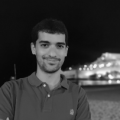
Alexander Martín Garín
Universidad del País Vasco, Departamento de Arquitectura
Doctor por la UPV/EHU, Máster en Investigación en Eficiencia Energética y Sostenibilidad y Graduado en Arquitectura Técnica. Co-investigador principal del grupo TICBE, centra su labor en la simulación y experimentación de la transferencia de calor y humedad en edificios, con especial atención a la rehabilitación energética del patrimonio construido. Su investigación abarca también la aplicación de tecnologías digitales en la edificación, destacando el desarrollo de sistemas de monitorización basados en IoT y plataformas Open Source, así como levantamientos arquitectónicos de alta precisión mediante BIM, escaneado láser 3D (TLS), fotogrametría y RPAS. Cuenta con un sexenio reconocido por ANECA y está acreditado como Profesor Titular de Universidad. Actualmente, ejerce como docente del Área de Expresión Gráfica Arquitectónica.
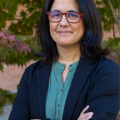
Aurora Monge Barrio
Doctora arquitecta, Profesora Titular en la Escuela de Arquitectura de la Universidad de Navarra. Sus intereses de investigación se centran en las estrategias pasivas de la arquitectura para la descarbonización de los edificios, la renaturalización de edificios y entornos urbanos, así como nuevos conceptos de envolventes térmicas, especialmente adaptativas. El enfoque considera los impactos y los efectos del clima y del cambio climático en el bienestar y salud de las personas, y especialmente las más vulnerables, como los mayores, los niños y las personas en pobreza energética. Ha participado en más de 15 proyectos de investigación a nivel internacional, nacional o regional, siendo investigadora principal en 4 proyectos y 4 contratos con la administración. Es co-autora de un libro, 25 artículos indexados revisados por pares (18 de ellos Q1), y más de 25 ponencias en congresos internacionales, y dispone de un sexenio de investigación. Ha participado en los Annex 75 y 86, y en Action Cost TU 1403. Su docencia está relacionada con la construcción de envolventes de edificios, y las estrategias pasivas para los edificios de consumo casi nulo, tanto en grado de Arquitectura como en el máster MDGAE de la Universidad de Navarra.

Carmen Sánchez-Guevara Sánchez
Arquitecta desde el año 2007 y Doctora con mención internacional en el 2016.Profesora contratada doctora en el Dpto. de Construcción y Tecnología Arquitectónicas de la Escuela de Arquitectura de la UPM donde también dirige el Máster en Medio Ambiente y Arquitectura Bioclimática. Su investigación se centra en la pobreza energética desde la perspectiva del derecho a la habitabilidad y el confort térmico. Ha sido la responsable en UPM de proyectos tanto del ámbito estatal como europeo, destacando el proyecto COOLTORISE del programa H2020, primero en abordar la pobreza energética de verano; el proyecto EPIU, financiado por la Urban Innovative Action o el proyecto BUILDSPACE, del programa Horizon. Eexperta para el Energy Poverty Advisory Hub de la Comisión Europea, asesorando a municipios para la puesta en marcha de acciones contra la pobreza energética. En los últimos años, ha combinado la docencia y la investigación con la consultaría ambiental urbana y edificatoria participando en un total de 18 contratos para distintas. Ha trabajado en un total de 24 proyectos competitivos, ha publicado 37 artículos científicos, ha participado en 9 libros y en 28 comunicaciones en congresos nacionales e internacionales.
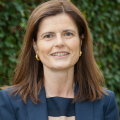
Ana Sanchez-Ostiz Gutiérrez
Dra.Arquitecta, Catedrática en la Escuela de Arquitectura de la Universidad de Navarra (UNAV) donde imparte clases sobre cubiertas, fachadas y arquitectura sostenible. Dirige el grupo de investigación SAVIArquitectura. Su campo de investigación se centra en el ecodiseño de cerramientos industrializados y sostenibles, la rehabilitación energética y regenerativa de edificios y barrios, la re-naturalización de ciudades y su influencia en el medioambiente y la salud de las personas. Ha participado en 42 proyectos y contratos de investigación, siendo IP en 25 de ellos. Ha publicado 48 artículos, de los cuales 32 están en revistas indexadas en el JCR. Es autora de 10 libros y capítulos de libros de editoriales reconocidas. Además, cuenta con una patente, una spin-off y 58 publicaciones en congresos con revisión por pares. Ha sido profesora e investigadora visitante en universidades como: Cardiff (UK); Worcester Polytechnic Institute (USA); Massachusetts Institute of Technology (MIT, USA); Pratt Institute (USA); Auckland (New Zealand); National University of Singapore (NUS) y Miami (USA). Durante 27 años compatibilizó su actividad docente e investigadora con el ejercicio libre de la arquitectura en su propia oficina de proyectos

Cristina Villanueva Díaz
EHU/UPV
Investigadora predoctoral en la Escuela de Ingeniería de Bilbao (UPV/EHU), en el departamento de Ingeniería Energética. Actualmente desarrolla su tesis doctoral en el grupo de investigación ENEDI, con una beca del Gobierno Vasco. Es Arquitecta (2019) por Escuela Técnica Superior de Arquitectura de Barcelona (UPC), y cuenta con un máster en Bioconstrucción: Biología del Hábitat por la Universidad de Lleida y el Instituto Español Baubiologie (2022). Su actividad investigadora se centra en la priorización y evaluación multidimensional de soluciones basadas en la naturaleza en el ámbito urbano.

Ane Villaverde García
UPV/EHU
Investigadora predoctoral en el departamento de Ingeniería Mecánica de la UPV/EHU desde el 2021 y miembro del grupo de investigación SAREN. Es graduada en Arquitectura por la UPV/EHU y máster en Arquitectura por la Universidad de Sevilla. Desarrolla su tesis doctoral en el área de la Adaptación al Cambio Climático desde la perspectiva del entorno construido, identificando y evaluando soluciones resilientes frente a las olas de calor en áreas urbanas. Complementa su investigación con la docencia en la Escuela de Ingeniería de Bilbao. Tiene experiencia profesional en el área de la arquitectura y el diseño urbano.
Registration fees
| Face-to-face | Until 23-06-2025 |
|---|---|
| 25,00 EUR |
| Live online | Until 23-06-2025 |
|---|---|
| 25,00 EUR |
Venue
Bizkaia Aretoa-UPV/EHU
Avenida Abandoibarra, 3. 48009- Bilbao
Bizkaia
Bizkaia Aretoa-UPV/EHU
Avenida Abandoibarra, 3. 48009- Bilbao
Bizkaia
Sustainable development goals
Agenda 2030 is the new international development agenda approved in September 2015 by the United Nations. This agenda aims to be an instrument to favour sustainable human development all over the planet, and its main pillars are the eradication of poverty, a reduction in equality and vulnerability and fostering sustainability. It is a unique opportunity to transform the world up to 2030 and guarantee human rights for all.

3 - Good health and well-being
Guarantee a healthy life and foster the well-being of all people of all ages. Key issues: universal healthcare coverage, sexual and reproductive health, reduction in the number of road accident casualties, pollution and chemical products, reduction in maternal and neonatal mortality, the end of epidemics such as AIDS, combating hepatitis and other water-borne diseases, drug and alcohol prevention, control of tobacco.
More information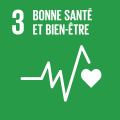
7 - Affordable and clean energy
Guaranteeing access to affordable, reliable, sustainable and modern energy for everyone. Key issues: universal access, increased proportion of clean energies, energy efficiency, research, fostering investments in energy infrastructures and clean technologies, modern and sustainable energy services.
More information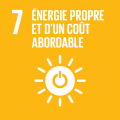
11 - Sustainable cities and communities
Make cities and other human settlements inclusive, safe, resilient and sustainable. Key issues: access to suitable housing and basic services that are secure and affordable, suitable and sustainable transport systems, inclusive urban planning, participative planning and management, protection of cultural and natural heritage, air-quality, green zones, and connections between urban, peri-urban and rural areas.
More information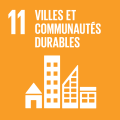
13 - Climate action
Adopt urgent measures to combat climate change and its effects. Key issues: mitigation, resilience and capacity for adaptation, planning, national strategies and plans, education and raising awareness, reduction of effects and early warning systems, compliance with the Framework Convention of the United Nations on Climate Change.
More information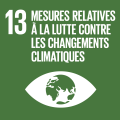
17 - Partnerships for the goals
Strengthen the means of implementation and revitalise the World Alliance for Sustainable Development. Key issues: mobilisation of resources, 0.7% of GDP for official overseas development aid, finances, cooperation in technology and innovation, ecologically rational technologies, skills building, universal and multilateral trade system, coherence on the legislative and institutional levels, availability of data, supervision, indicators and accountability.
More information